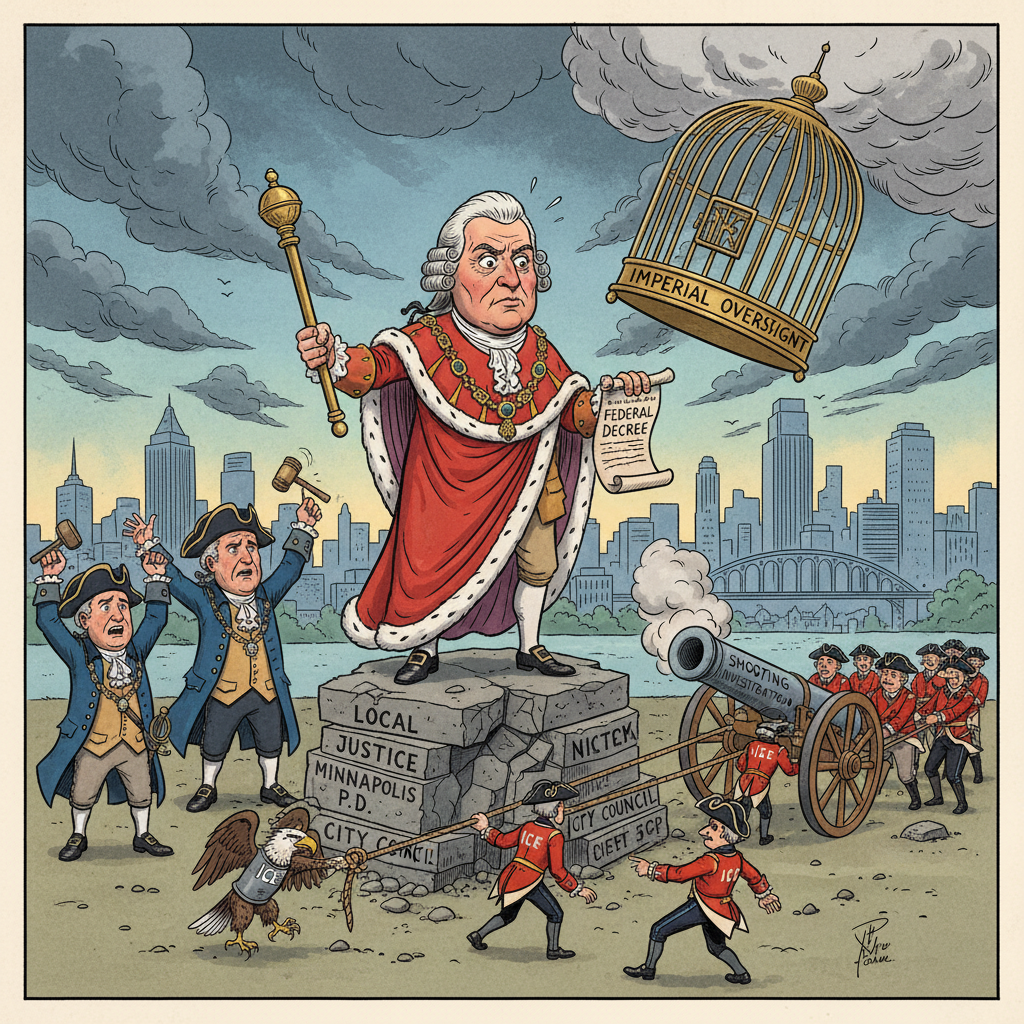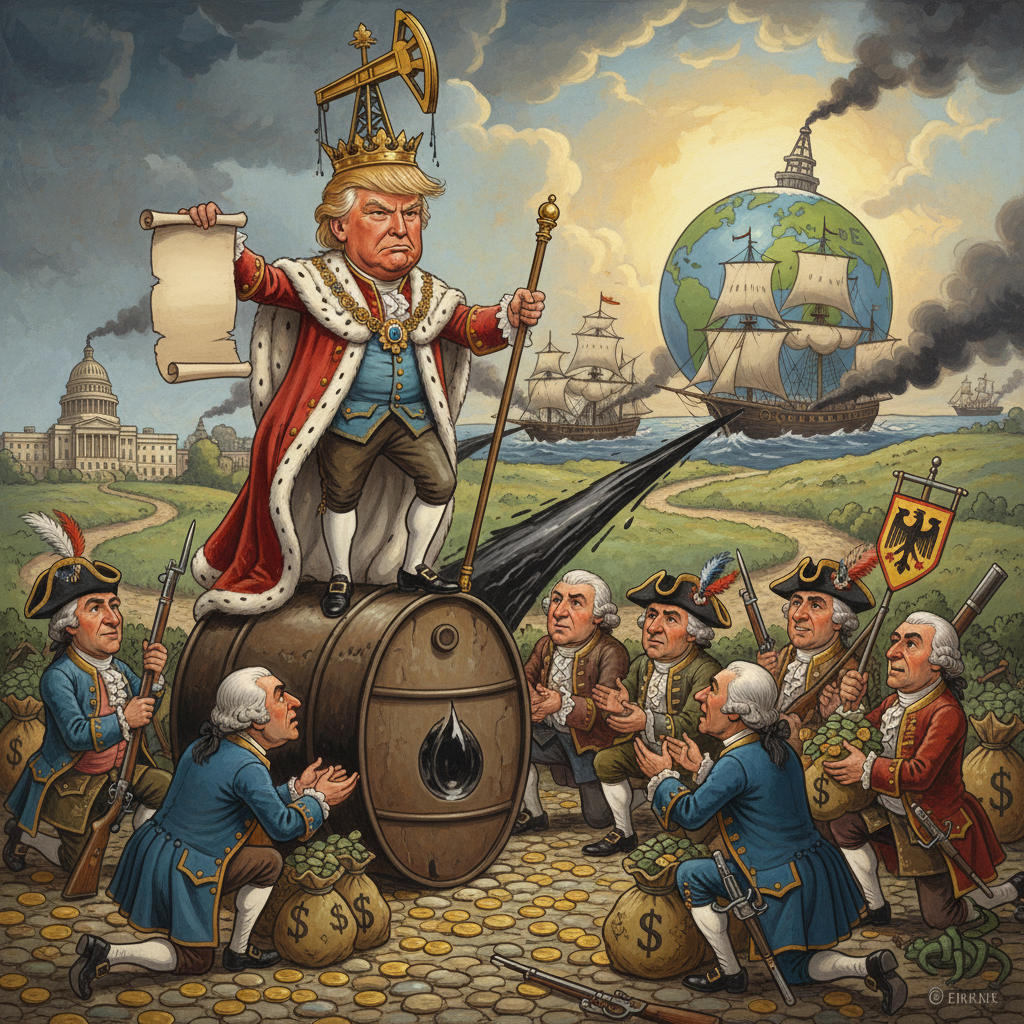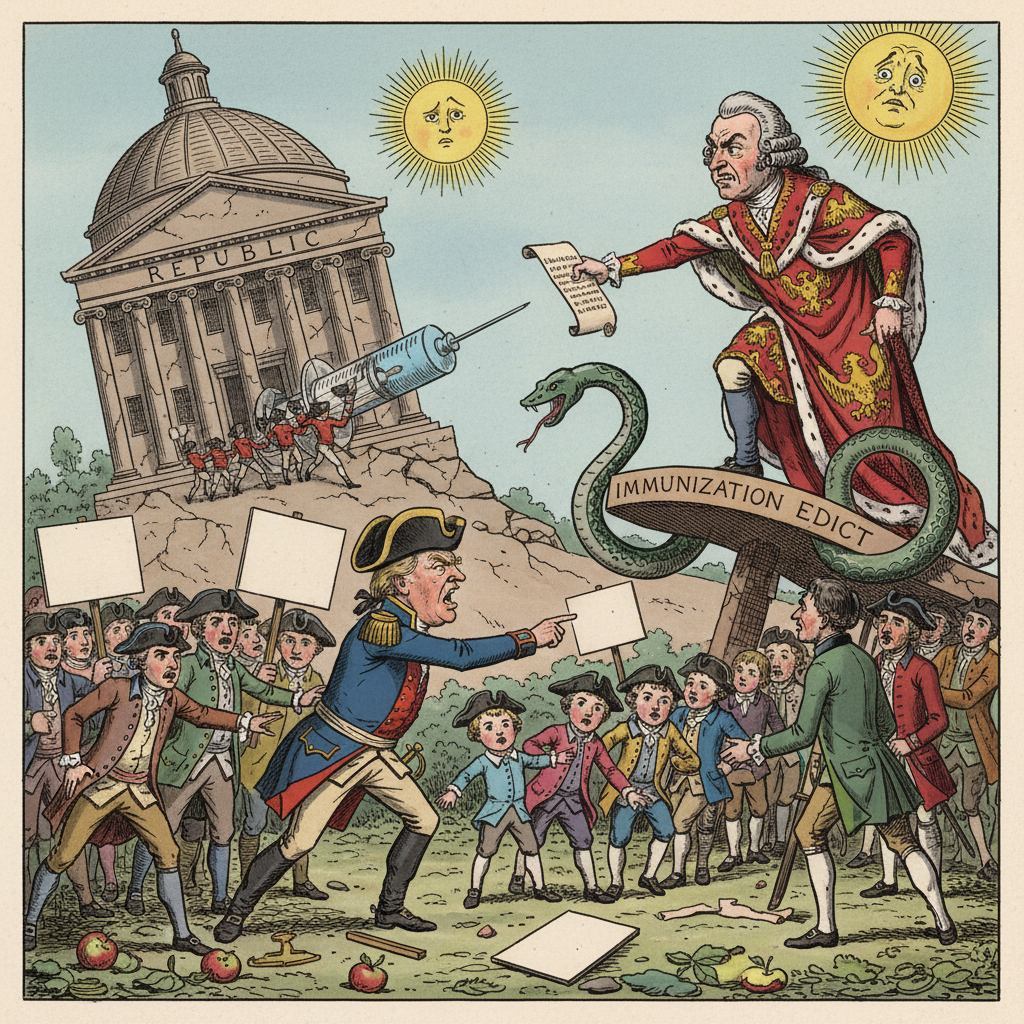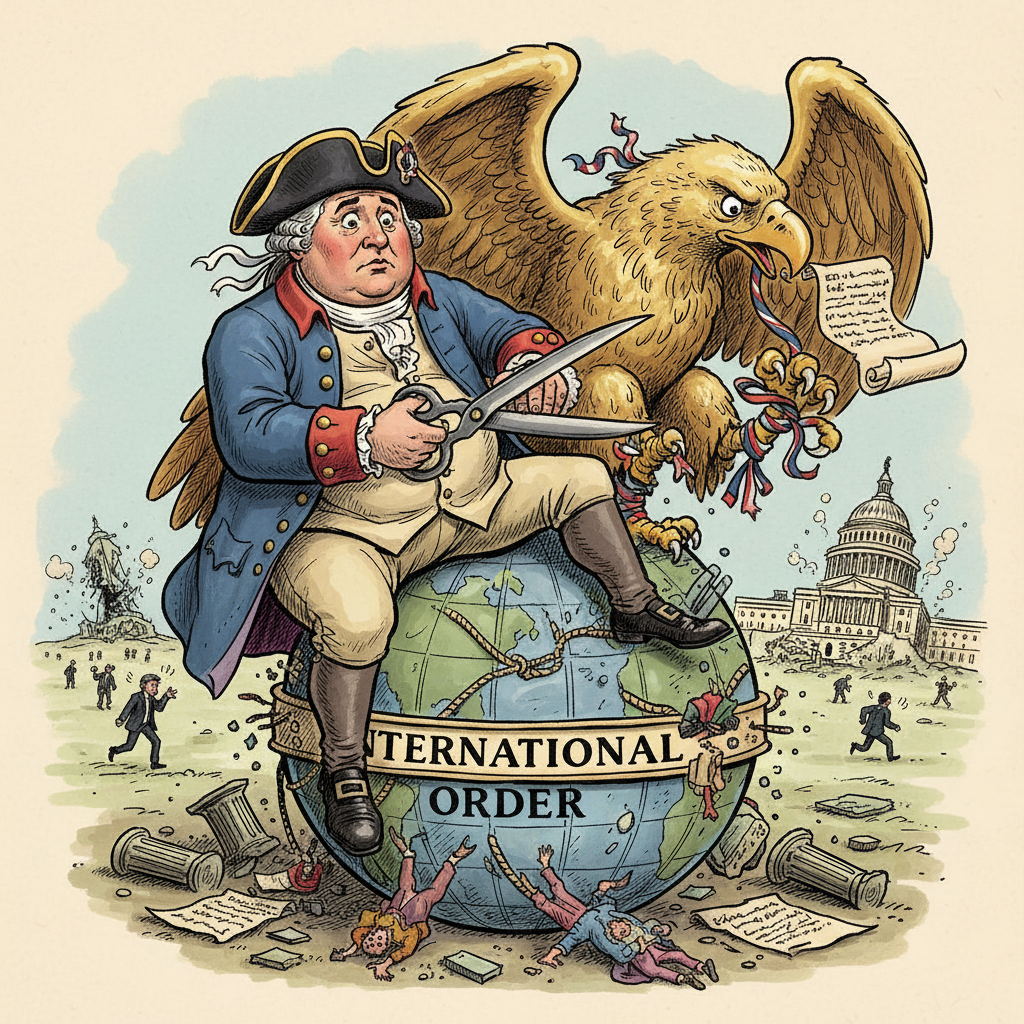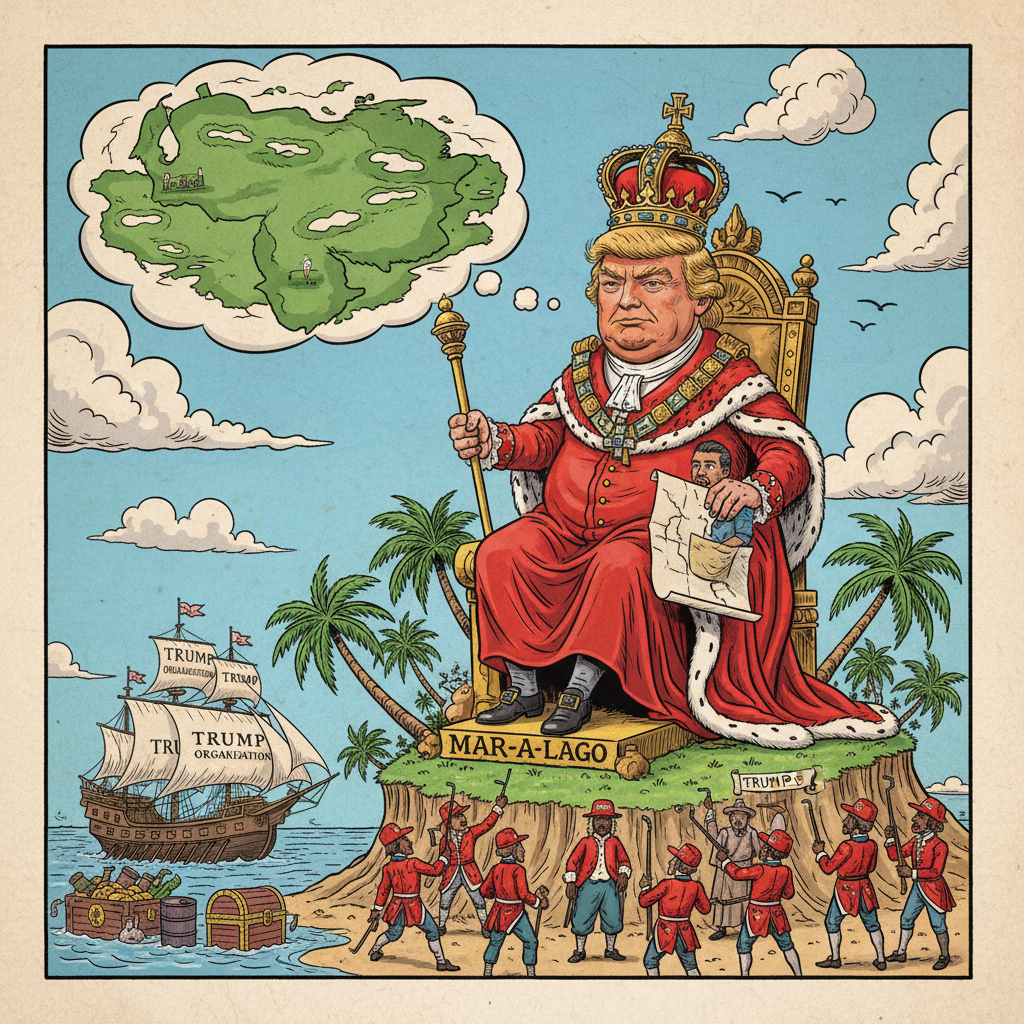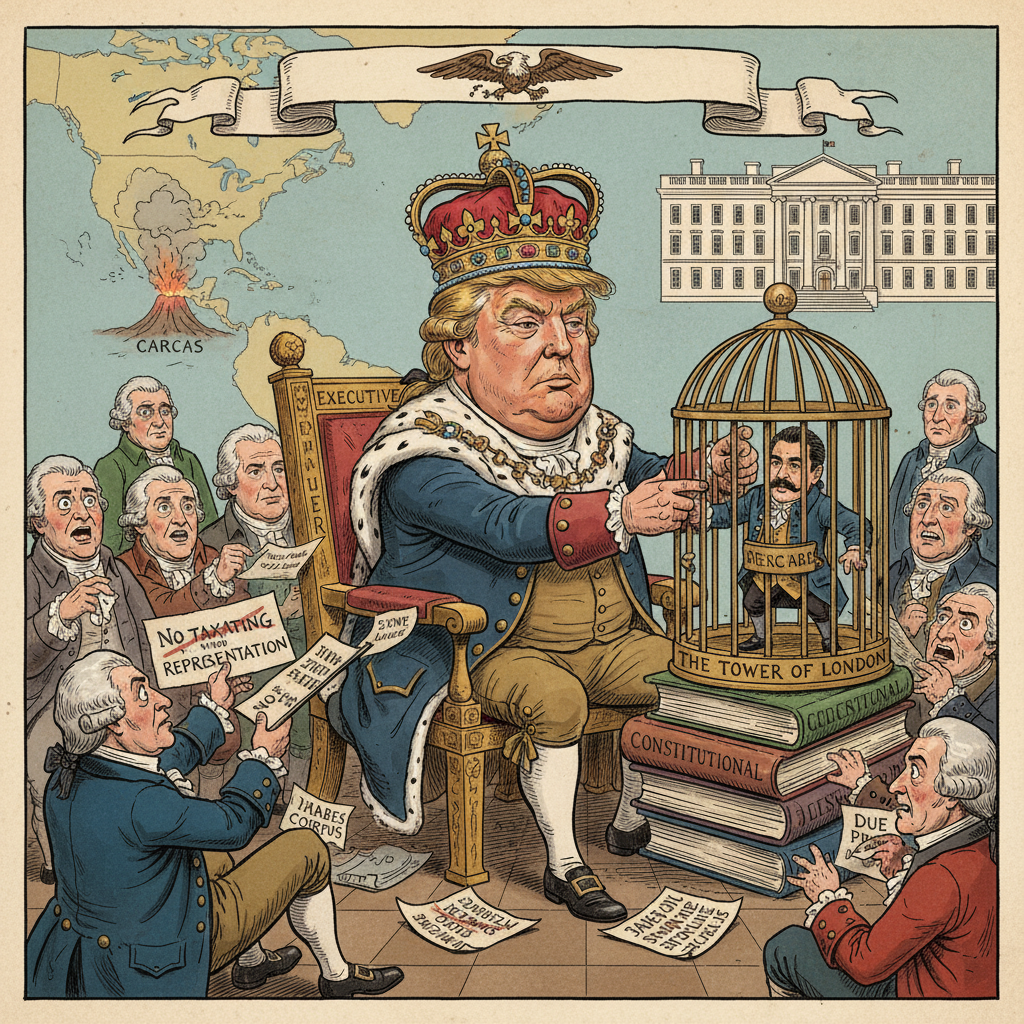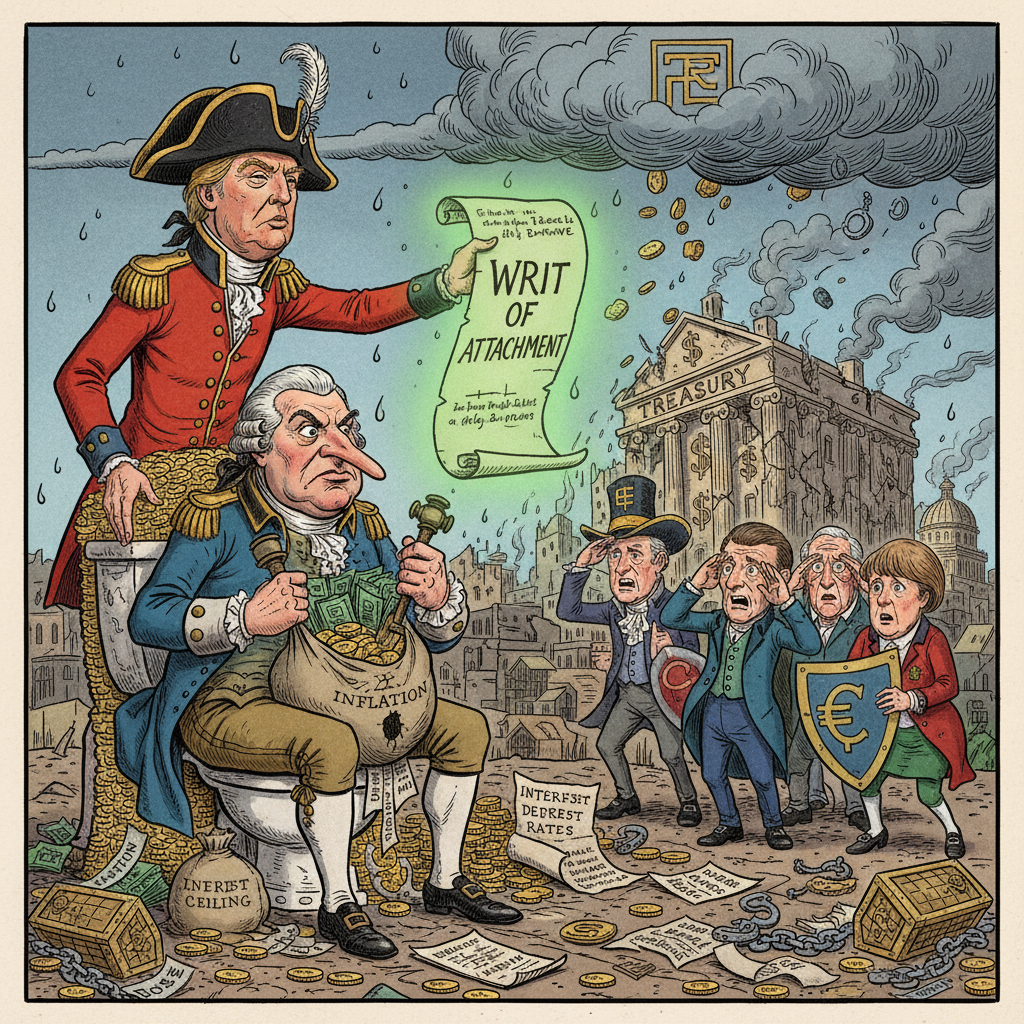
Global financial authorities expressed unprecedented solidarity following the Trump administration's criminal investigation into Federal Reserve Chair Jerome Powell, signaling profound alarm.
The King's Writ and the Treasury: Powell's Plight a Familiar Colonial Echo
 By Anya Sharma
By Anya Sharma Global financial authorities expressed unprecedented solidarity following the Trump administration's criminal investigation into Federal Reserve Chair Jerome Powell, signaling profound alarm.
Why it matters: The implications extend beyond mere budgetary oversight. This executive intervention, paired with a pivotal Supreme Court case on presidential removal powers, directly challenges the institutional independence vital for impartial economic governance. As Madison stated in *Federalist No. 50*, 'the provision for the security of public liberty requires that in fact there should be no such accumulation of all powers in the same hands.' Such sustained executive pressure, mirroring colonial grievances against unchecked royal prerogative, jeopardizes the Fed's credibility and global financial stability. Asserting direct presidential authority over monetary policy risks transforming a cornerstone of economic stability into a political instrument, threatening every mortgage rate and grocery bill.
Read the Full Story